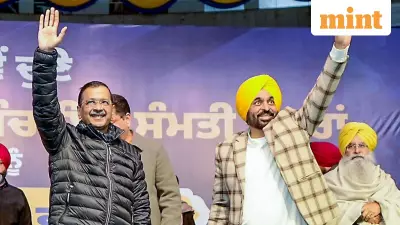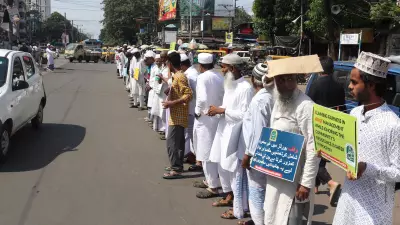
In a significant judicial rebuke, the Delhi High Court has come down heavily on the Central government for deliberately concealing crucial facts in the controversial promotion case of IRS officer Sameer Wankhede. The court imposed substantial costs of ₹20,000 on the government authorities for their lack of transparency.
Court's Strong Stance Against Concealment
Justice Subramonium Prasad delivered a scathing observation, stating that the petitioner officer had been compelled to approach the court specifically because the government had withheld vital information. The deliberate concealment of facts forced the judicial intervention that could have been avoided with proper disclosure.
The court emphasized: "When the petitioner asked for the information, it was not given. The petitioner had to approach this court because the information was concealed." This strong wording underscores the seriousness with which the court views the government's lack of transparency.
Background of the Controversial Case
Sameer Wankhede, who gained national attention during his tenure as zonal director of the Narcotics Control Bureau (NCB) in Mumbai, found himself at the center of a promotion battle within the Indian Revenue Service (IRS). The case revolves around his promotion considerations and the procedural irregularities that followed.
The Central Board of Direct Taxes (CBDT), which functions under the Department of Revenue in the Finance Ministry, faced judicial scrutiny for its handling of Wankhede's promotion file. The court's intervention became necessary when the officer discovered that relevant documents and information were being withheld from him.
Legal Proceedings and Government's Defense
During the court proceedings, the Central government counsel attempted to justify the concealment by arguing that the information sought by Wankhede was "too general" in nature. However, this defense failed to convince the bench, which found the government's position untenable and contrary to principles of natural justice.
The court's ruling highlights the importance of transparency in administrative processes, particularly when it concerns career progression of government officers. The ₹20,000 cost imposed serves as both punishment and deterrent against similar conduct in future cases.
Broader Implications for Bureaucratic Transparency
This judgment sends a strong message to all government departments about the necessity of maintaining transparency in administrative matters. The court's firm stance establishes an important precedent for similar cases where information disclosure becomes a matter of right rather than privilege.
The case also underscores the judiciary's role as a guardian of procedural fairness in bureaucratic processes, ensuring that government officers receive fair treatment in matters of career advancement and that relevant information isn't arbitrarily withheld from them.





